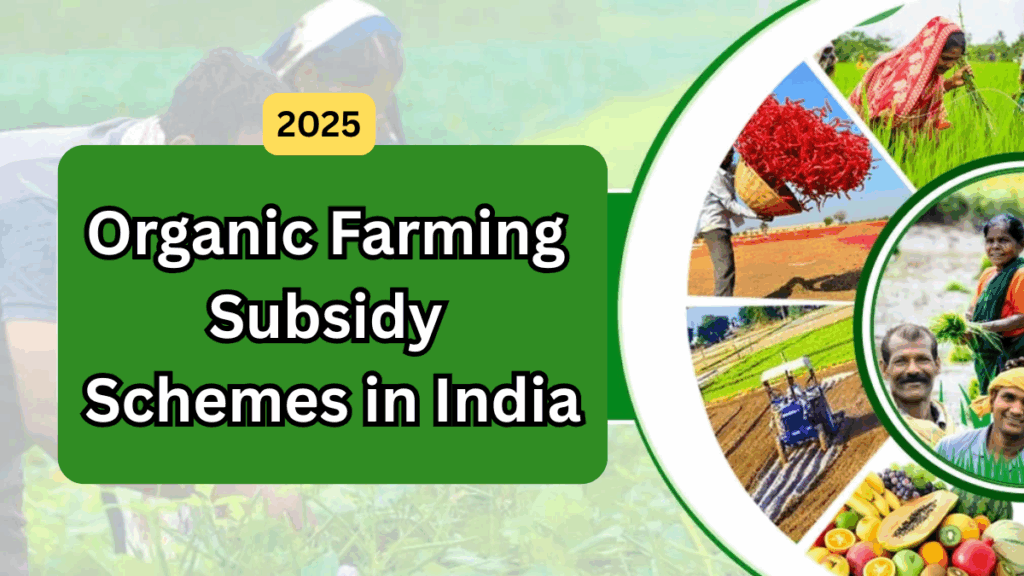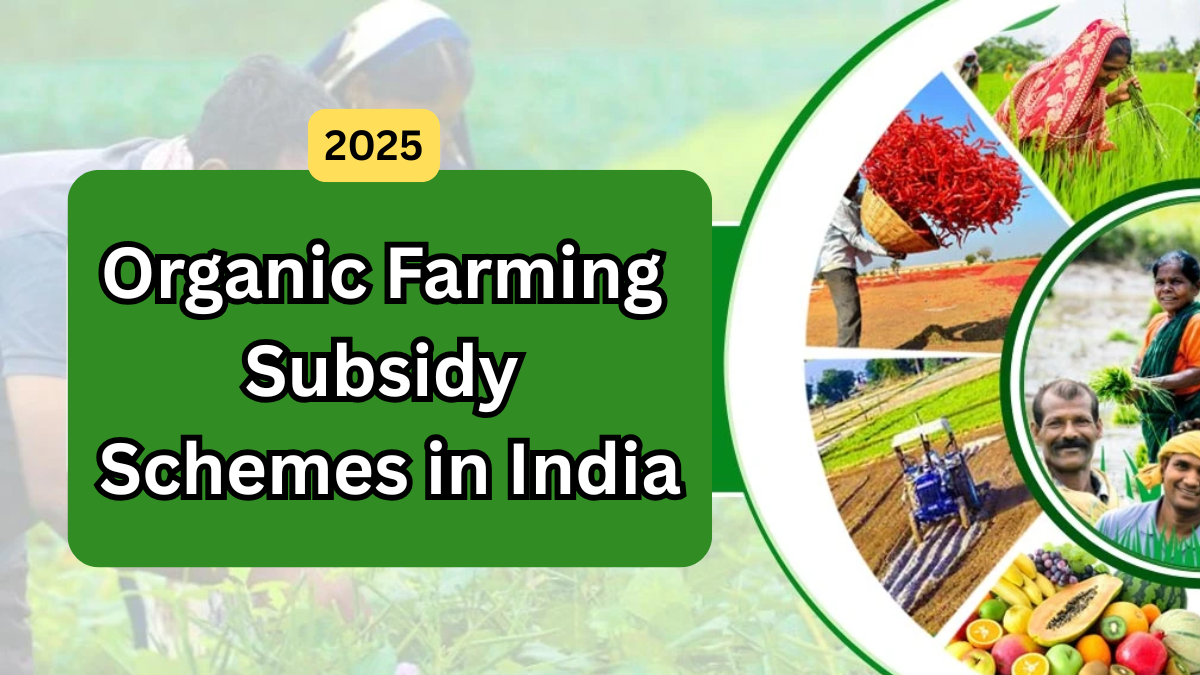Organic farming has emerged as a sustainable solution to modern agricultural challenges. With increasing awareness about health, soil fertility, and environmental preservation, many Indian farmers are shifting towards organic farming. Recognizing its importance, the government has introduced multiple Organic Farming Subsidy 2025 programs under various Govt programs to support farmers financially and technically.
This article explores the key schemes, eligibility criteria, benefits, and application process for organic farming in India.

What is Organic Farming?
Organic farming emphasizes the use of natural inputs and eco-friendly practices to grow crops without synthetic chemicals. Its benefits include:
-
Improved soil health and fertility
-
Reduction in environmental pollution
-
Healthier and chemical-free produce
-
Long-term sustainability for farmers
Govt Programs Supporting Organic Farming in 2025
The Indian government has launched several Govt programs to promote organic agriculture. These programs provide financial incentives, training, and infrastructure support.
| Scheme Name | Benefits | Eligible Farmers | Funding/Support |
|---|---|---|---|
| Paramparagat Krishi Vikas Yojana (PKVY) | Cluster-based organic farming, certification support | Small & marginal farmers | ₹20,000 per ha for organic input & certification |
| Mission Organic Value Chain Development for North Eastern Region (MOVCDNER) | Value chain development, market linkages | NE region farmers | Subsidy up to 50% on inputs, training & marketing support |
| National Project on Organic Farming (NPOF) | Training, demonstration, input supply | All farmers | Financial assistance for organic inputs, seeds & biofertilizers |
| Organic Farming Certification Support | Certification & marketing support | Certified organic farmers | Subsidy of 50-75% for certification cost |
Key Benefits of Organic Farming Subsidy 2025
Farmers can enjoy multiple benefits under the Organic Farming Subsidy 2025 programs:
-
Financial assistance for purchasing organic inputs
-
Support for organic certification and labeling
-
Training and workshops to implement best practices
-
Better market access and price premium for organic products
Eligibility Criteria
To apply for the Organic Farming Subsidy 2025, farmers generally need to meet the following criteria:
-
Must be a registered farmer with the local agriculture office
-
Should have cultivable land suitable for organic practices
-
Willingness to adopt organic farming methods for 3 years
-
Participation in farmer training and cluster programs
How to Apply for Organic Farming Subsidy Schemes
The application process is simple and designed to encourage maximum participation:
-
Visit your State Agriculture Department website or local Krishi Vigyan Kendra (KVK)
-
Check eligibility and select the suitable scheme
-
Fill out the online/offline application form
-
Submit necessary documents such as land records, ID proof, and soil test reports
-
Await approval and receive subsidy support for implementing organic farming practices
Tips for Maximizing Benefits
-
Join cluster-based organic farming programs to reduce costs
-
Maintain proper records of inputs and farming practices for certification
-
Attend government-organized workshops and training programs
-
Explore market linkages provided under government programs for better pricing
FAQs on Organic Farming Subsidy 2025
Q1. Who can apply for the Organic Farming Subsidy 2025?
A1. All registered farmers, including small and marginal farmers, who are willing to adopt organic practices, can apply for these schemes.
Q2. Is organic certification mandatory to receive subsidies?
A2. Some schemes provide subsidies for certification, but farmers generally need to commit to organic farming practices for 3 years.
Q3. Can I apply for multiple govt programs simultaneously?
A3. Yes, farmers can apply for multiple Govt programs if they meet the eligibility criteria for each scheme.
Q4. Where can I get guidance on implementing organic farming?
A4. Krishi Vigyan Kendras (KVKs), state agriculture departments, and online government portals provide training and technical guidance.
Click here to learn more
